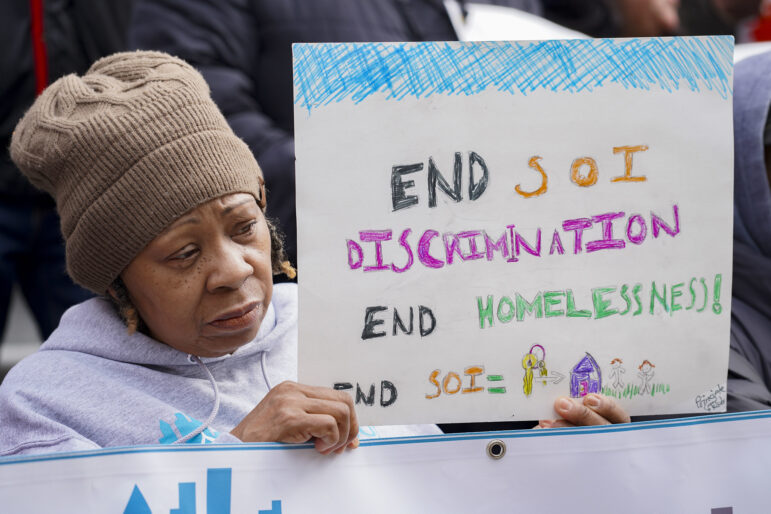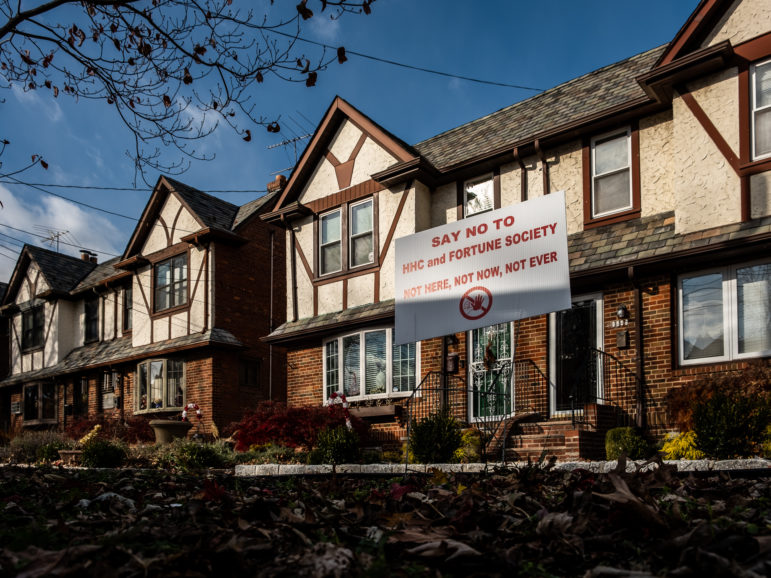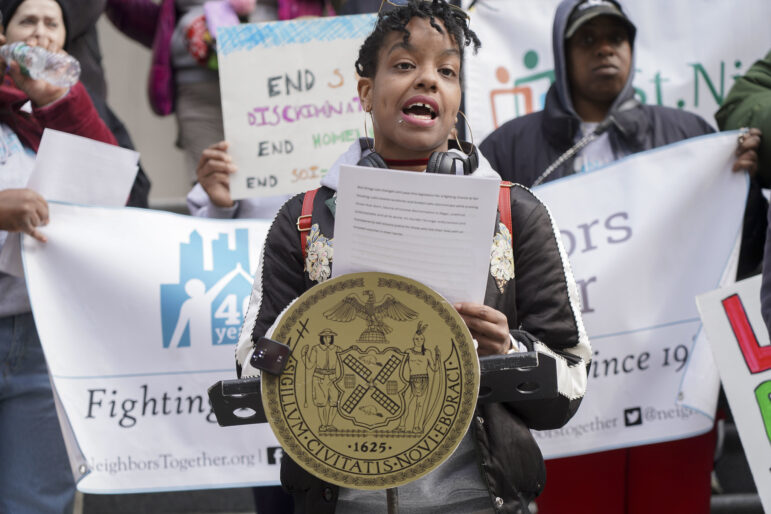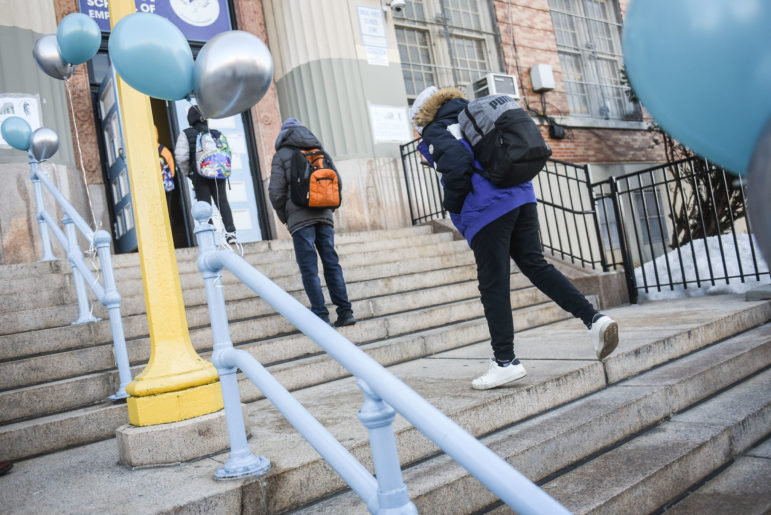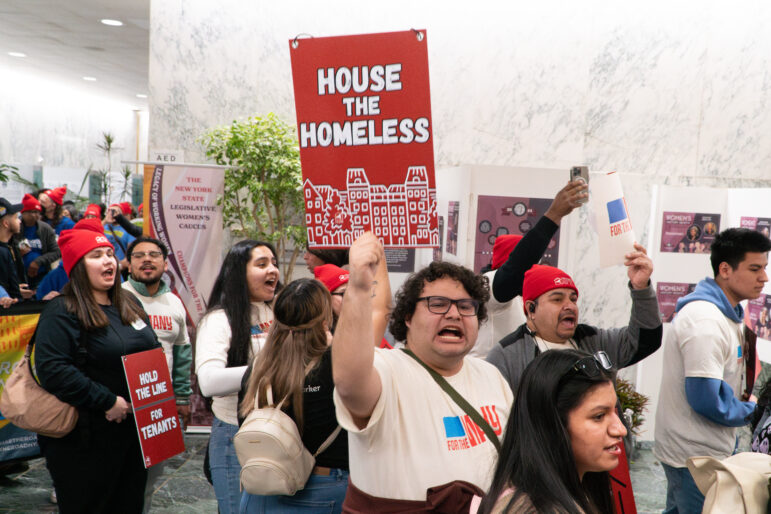
Photo by: Adi Talwar
Former Congressman Anthony Weiner says NYCHA could save money by using so-called performance contracting.
Radically reduced federal funding, backlogs of repairs, and whether to prioritize homeless people for available apartments are among the issues facing the New York City Housing Authority (NYCHA).
Advocates have suggested the termination of NYCHA’s arrangement with the NYPD, in which the Authority pays over $70 million yearly for police services, as a way of generating much needed revenue for NYCHA. Others have suggested that a greater management overhaul is needed, including putting an end to salaried board members. With over 400,000 residents living in NYCHA housing, New York’s public housing population might have a significant influence over the race. Where do the candidates stand on the issues that matter to NYCHA tenants?
Sal Albanese (D), a former councilman, has said that he would appoint a NYCHA chairman with “genuine experience with housing and community consultation.” In addition to better management, Albanese has stated that he would “vigorously pursue federal funding,” though it is unlikely how useful this will be. The federal government has been telegraphing over the years not to expect much more in the way of funding for public housing. He is open to setting aside public housing for the homeless, though he adds that “doing so would require support from the vibrant communities already living in public housing facilities.”
Adolfo Carrion (I), former director of the White House Office of Urban Affairs and former borough president of The Bronx, says he would find revenue for NYCHA by leveraging the value of its real estate, by selling air rights, suing property for advertising platforms and bringing in rent-paying retail and community facilities.
John Catsimatidis (R) said in a debate earlier this year that he’d assign more cops to patrol NYCHA buildings and, according to the Daily News, said he wants the city to create a path to homeownership for public housing residents.
Bill de Blasio (D), the city’s public advocate, has called for a full overhaul of NYCHA’s management, and a reassessment of how NYCHA interacts with the NYPD. His website says that, as mayor, de Blasio “will put new energy behind health and safety repairs, eliminating NYCHA’s notorious backlog” and make repairs to NYCHA buildings with a workforce drawn from public housing residents. He opposes a plan to build mixed income housing on NYCHA property.
Joe Lhota (R) has said relatively little about NYCHA, but did say early in the campaign that NYCHA ought to convert the ground floor of some buildings to retail establishments, generating retail for the authority and improving quality of life for residents.
John Liu (D), the city comptroller, is in favor of homeless priority. He says he would make sure NYCHA has a detailed plan for spending its money and a better management team, and proposes shifting the repair system to the Internet and creating a jobs program for residents. An opponent of the NYCHA payments for police and sanitation, he also opposes a plan to build mixed income housing on NYCHA property.
Christine Quinn (D), speaker of the City Council, has called for restoring the homeless priority in assigning NYCHA apartments. In addition, Quinn has called for structural improvements to NYCHA’s management, including inventory tracking, centralized call centers, and asset management. She has also called unequivocally for the end of NYCHA using its revenue to pay for police services. She also opposes a plan to build mixed income housing on NYCHA property.
Bill Thompson (D), a former city comptroller, says he is in full support of setting aside Section 8 vouchers and public housing for the homeless. He would end the $100 million paid by NYCHA to the city for police and sanitation services, saying that “the present policy is an embarrassment to our city.” He has said that he will fire Chairman John Rhea and make sure that people with experience in housing run the Authority, and will insist on including residents in major decisions. He opposes a plan to build mixed income housing on NYCHA property, but does want to build middle-income housing on vacant NYCHA land and use the income generated to support NYCHA
Anthony Weiner (D) says in his Keys to the City policy books that NYCHA should implement “performance contracting … that pays for energy-efficient improvements like lights, boilers, and windows paid for with advance cash and repaid with the month-to-month savings that are guaranteed to result. ” He also proposes a partnership between private sector property managers and tradespeople and the NYCHA workforce to address what Weiner says is a $14 billion list of repairs.


